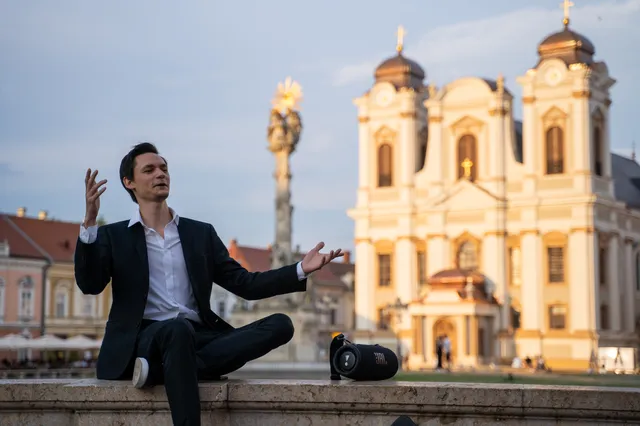Another kind of guided tour through the capital of Banat
"The Danube connects the centre to the edge, which is why it is the
most European of all rivers - and the deepest,
the most intelligent narrative that geography
of our continent offers us." - Andrzej Stasiuk
During this tour of the city, guided by actors, the audience will meet personalities from different eras of Timișoara's history, about whom they will learn hitherto unknown and unusual details of both their lives and the city's history.
The guided tour aims to bring Timisoara's inhabitants and visitors closer to a city whose characteristics lie in its remarkable contrasts.
Directly linked to the history of Europe, Timișoara, the first electrically lit city in Europe, aims to illuminate, by itself, Romania, a Danube country, with its fresh authenticity and unpredictable charm. Timișoara, Romania's westernmost city, as European Capital of Culture in 2023, represents centuries of history, of important European events, and its streets, squares and buildings are places of memory, filled with the stories of its immigrants, emigrants and inhabitants. The way art, culture and education can shape a place is highlighted all the more clearly by the Danube Destinies project.
Timisoara's city center, its historical monuments and venues become the stage for these very different perspectives. Biographies of historical and contemporary personalities are linked to the history of the city's architecture. Through this connection, a tour of the city seen through the eyes of the historical personality will take on a completely new and unknown dimension.
The performance benefits from simultaneous translation into Romanian.
In case of bad weather, the performance is suspended. In these circumstances, spectators may attend subsequent performances or request a refund of their tickets.
The event is part of the programme Timisoara 2023, European Capital of Culture, in collaboration with the Cultural advisor for the Danube Region at the Danube Swabian Central Museum, Dr. Swantje Volkmann. The project is co-funded by the Municipality of Timișoara and the Danube Ulm Office.

